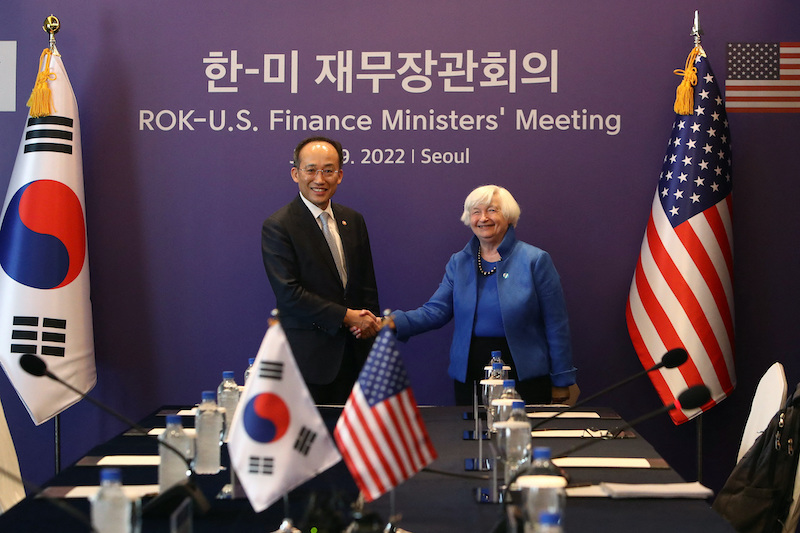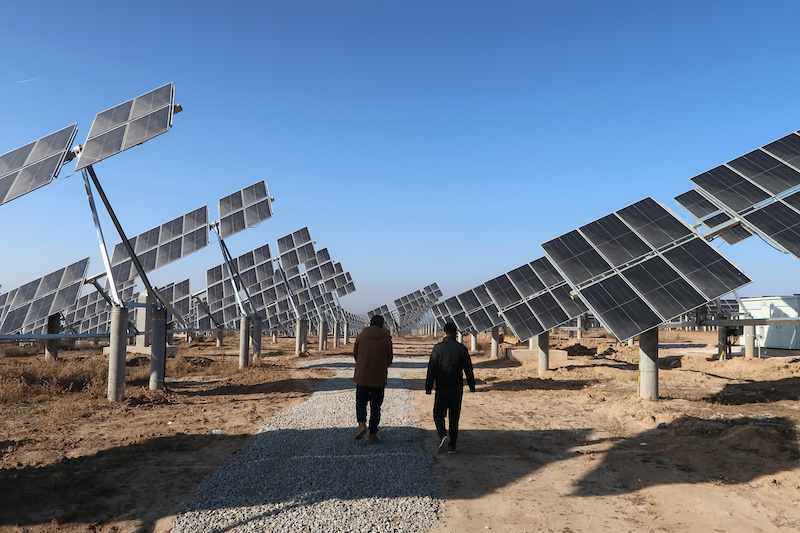South Korea’s exports grew at the slowest pace in nearly two years in September as weaker global demand puts pressure on the trade-dependent economy.
Overseas shipment grew 2.8% in September, missing the 2.9% tipped in a poll of analysts and the slowest expansion since October 2020.
Asia’s fourth-largest economy has seen export growth decline to the single digits since June as slowdowns in the United States, Europe and China put the brakes on demand for Korean goods.
Shipment data out of Korea provides an early health check on global trade as its manufacturers of chips to cars import massive amounts of raw materials and components and straddle a wide swathe of the world supply chain.
With growing fears of a global recession, Asia’s exports are expected to weaken further in coming months.
“Korean exports will suffer further from weaker external demand and base effects, and relatively stronger import growth will widen the trade deficit further,” said Yu-mi Kim, an analyst at Kiwoom Securities.
Imports jumped 18.6%, faring better than 16.4% expansion expected in the survey but slowing from a 28.2% gain in August.
That brought the trade balance to a $3.77 billion deficit, marking a sixth consecutive month in red.
Exports of semiconductors declined 5.7% in September from a year earlier, while steel exports dropped 21.1%. Auto exports, however, were up 34.7%.
By destination, shipments to the United States gained 16.0%, but those to China and the European Union were down 6.5%, and 0.7%, respectively.
ALSO SEE: Yoon Calls for Urgency After Korean Won’s Worst Month in Years
Liquidity Deal With US
Meanwhile, the United States and South Korea agreed on Saturday to implement liquidity facilities to stabilise financial markets if needed, Korea’s finance ministry said after a teleconference between finance chiefs of the two countries.
The won is near its lowest level since March 2009, and has weakened 17% against the surging US dollar this year, amid a broad sell-off in emerging market currencies as the Federal Reserve aggressively raises interest rates.
“The two countries are ready to work closely together to implement liquidity facilities when necessary, such as when financial instability is aggravated by the spread of (a) liquidity crunch in major economies, including Korea,” the ministry said in a statement after the call between the US Treasury Secretary Janet Yellen and South Korea finance minister Choo Kyung-ho.
The agreement reached on Saturday repeats the US statement made when Yellen last visited Seoul in July, amid growing calls for the Bank of Korea to arrange a currency swap with the Federal Reserve to stabilise the dollar-won market.
However, the statement released on Saturday did not elaborate on whether the facilities that may be deployed referred to a currency swap and South Korea’s finance ministry did not give further details.
A $60-billion currency swap pact set up in March 2020 between the central banks of the two countries as an emergency step to stabilise markets expired at the end of last year.
Such a swap would allow South Korea to borrow a certain amount of US dollars for a pre-set period and rate, in exchange for won, so as to resolve difficulties in dollar liquidity.
To help protect one of the world’s worst performing currencies, South Korean authorities has recently arranged a $10 billion currency swap program with the country’s state-run pension fund, a tool that allows the fund to finance its overseas investment with the central bank’s FX reserves, instead of buying dollars in the spot market.
- Reuters with additional editing by Jim Pollard
ALSO SEE:
























